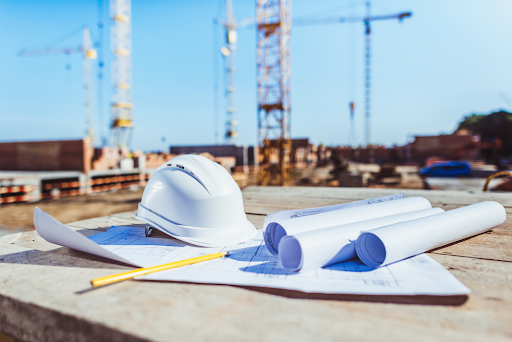
Inspection into construction equipment is quite vital to ensure safety, efficiency, and durability of various machinery at the construction sites. A construction site is always characterized by busy activities that involve heavy machinery which may be operating close to each other and sometimes hazardous if the equipment is not well maintained. These regular inspections would help not only in finding those potential problems before they may become major ones but also contribute to compliance with the safety regulations. This helps construction companies invest in protecting their workforce and assets through regular inspections, alongside optimizing project outcomes.
Improvement of Safety Standards
First and foremost, safety is always the top priority on every building site. Regular inspections will keep it to the highest standard possible. This includes machinery, such as excavators, cranes, and bulldozers-all much more dangerous if not serviced. It allows for equipment to be inspected for all its safety features, including alarms, lights, and brakes. Equipment inspections enable the determination of parts that are worn or damaged and are, therefore, often the cause of malfunctioning or accidents. By addressing such problems well in advance, companies are in a better position to ensure a safe workplace for their employees and minimize the level of injuries and accidents that could result in a stoppage of work and lawsuits that could be costly.
Improving Equipment Reliability
Construction equipment reliability means that projects can be completed on schedule and within budget. Regular inspection allows for the early detection of mechanical problems to ensure all the equipment is always in good working condition. Minimizes not only the risk of sudden breakdowns, but it also prolongs machinery lifecycles. Equally, when equipment is taken through routine inspections and maintenance, chances of their downtime, which could interfere with the schedule of projects, are minimal. Companies, through close interaction with a reputable construction equipment supplier, are able to establish a routine maintenance schedule that keeps all equipment reliable and ready for use any time.
Cost-Effectiveness of Preventive Maintenance
Though these are the upfront costs of arranging the inspections and carrying out maintenance, routine inspections actually save the owners a lot because these costs outweigh the ones brought about by unexpected repairs and equipment replacements. Unscheduled machinery breakdown can cause costly delays, rental costs for replacement equipment, and perhaps increased labor costs when workers simply sit around waiting for repairs. Through the routine inspection, businesses can detect small problems and fix them before they become major repairs that will surely save them a lot of money and resources.
Compliance with Regulations
Construction is a highly regulated industry, and compliance with safety regulations is not optional. Regular inspection among construction equipment ensures the requirements set by local, state, and federal safety would be met. Non-compliance may lead to fines, other legal issues, and loss of company prestige. Regular maintenance inspections will provide a written record of the maintenance activities and states of equipment that denote the commitment of a company towards safety and compliance. Besides saving the company from probable penalties, this will build some kind of relationship with trust and confidence among clients and stakeholders.
Enhancing Operational Efficiency
The operational issue is one of the most important issues in the building sector, since time can be one of the critical factors. An operational process goes far more smoothly through regular inspections that gauge and maintain optimal performance levels from all machinery. First and foremost, machinery in good condition is able to perform optimally, which gives a crew an easier time in many ways of working on the concerned jobs. It may lead to higher output levels as the projects can thus be completed on time or even sooner than the due date. Laborers and managers can also be confident that equipment is inspected and maintained on a routine basis; they can focus on their work without always having the anxiety of an equipment breakdown looming over their heads.
Regular construction equipment inspections afford that valuable combination of increased safety, better dependability, and adherence to regulations. With attention being paid to due inspections of equipment, construction companies can assure themselves of saving costs and increasing operational efficiency besides offering a much safer work environment. In the long term, the accrued benefits of regular equipment inspections considerably outweigh the short-term costs incurred. In essence, a commitment to due inspections simply reflects a commitment to quality, safety, and excellence in the industry. Any business, through a partnership, will be better equipped with an authorized and experienced construction equipment supplier that can offer all the required tools, resources, and support for its equipment.
Interesting Related Article: “How Any Construction Business Can Decrease Waste”
